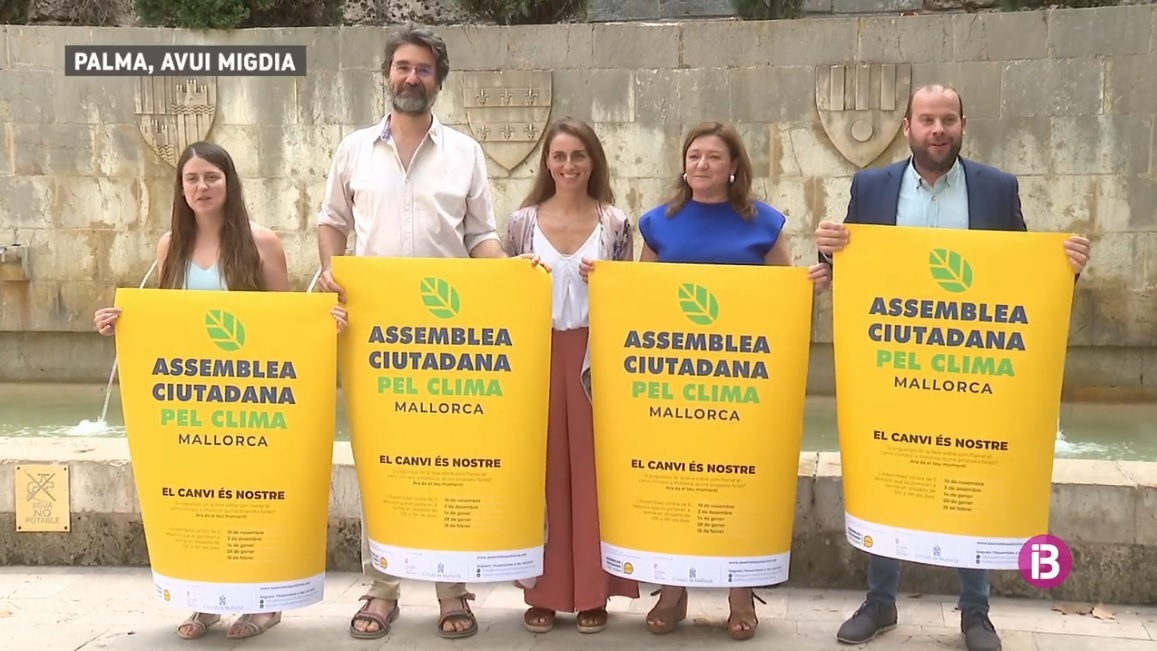32 binding recommendations on climate action

In Mallorca, a climate assembly recommends limiting access for people, ships and cars to the Spanish island. These and 55 other recommendations were adopted by the assembly on 18 February 2023.
With the proposal to limit entry, a total of 32 proposals received the support of more than 90 percent of the citizens' assembly participants. The island government and Mallorca City Council have committed to implementing all proposals that receive a majority of at least 90 per cent.
Remaining proposals will be examined individually
The remaining proposals, which were also approved by a large majority, will now be examined individually before they are possibly also implemented. If this does not happen, the government and authorities must justify this. Assembly recommendations that do not fall within the competence of the government or city council are forwarded to the relevant institutions.
In addition to limiting access to the island, other proposals revolve around reducing overnight accommodation on the island by 40 per cent by 2030, increasing the size of marine protected areas, the use of rainwater, the reduction of waste in all sectors of the economy and the promotion of packaging take-back systems, as well as a strong commitment to raw material production and the promotion of local products. Support for renewable energy and energy communities also found support in the citizens' assembly. In addition, individual transport should be restricted and the use of public transport promoted instead.
60 randomly selected participants
What do we need to do in Mallorca by 2030 to tackle the climate emergency effectively and in a socially just way? This was the question that 60 randomly selected residents of the Spanish Balearic island are discussing since 19 November 2022.
"The question is not whether we will either make a profound energy transition or carry on as usual. Change is on our doorstep, and it is up to each of us to decide how much damage it will do," says Pau de Vílchez, professor of international law and international relations and deputy director of the Interdisciplinary Climate Change Laboratory at the University of the Balearic Islands. The latter had taken the initiative for the climate assembly.
"Challenges that affect our lives"
"We are dealing with a challenge that will affect all aspects of our lives," de Vílchez said, alluding to the unusually high number of tropical nights, heat waves and flood disasters like the one in Pakistan. "All this is part of the 'new normal' and it concerns everyone," he finds.
"How to make the change, where to start, which alternative energies should be prioritised or how to change transport are societal debates that go beyond the scientific debate. It is about citizens evaluating the options. We hope that it will be a good experience for the participants and that the debate will reach the whole society, that it will go beyond the assembly," de Vilchez continued.
10,000 invitations
10,000 islanders had been invited to the climate assembly in Mallorca. The 60 participants were selected from those drawn to participate according to the criteria of age, gender, place of residence, level of education and income in such a way as to represent a reflection of the island's population. "The voice of people who otherwise hardly get a hearing should also be given weight in this way," de Vílchez explained the purpose of the sortition procedure, which was carried out by the Sortition Foundation.
Five assembly meetings were held between 19 November 2022 and 18 February 2023. In the first session, participants were introduced to the topic of climate change and a climate of trust and participation was created, which is a prerequisite for respectful and constructive debate.
Assembly topics
The following three sessions focused on energy production, mobility and transport, and the role of ecosystems, natural areas and agriculture as fields for combating climate change. In each session, both experts and stakeholders such as employers, trade unions and civil society representatives presented their views. The fifth and final session reviewed the proposals developed in the previous sessions and decided on final adoption.
The five assembly meetings were held without media or other outside observation. This was to ensure the anonymity of the participants. The contents and discussions in the citizens' assembly were kept confidential in order to give the participants the peace they need for their deliberations and not to expose them to public pressure.
Read more: